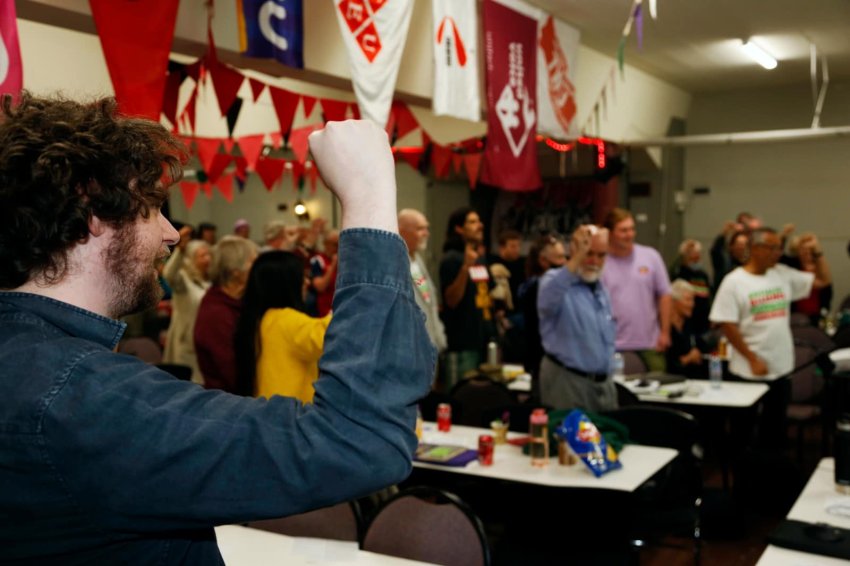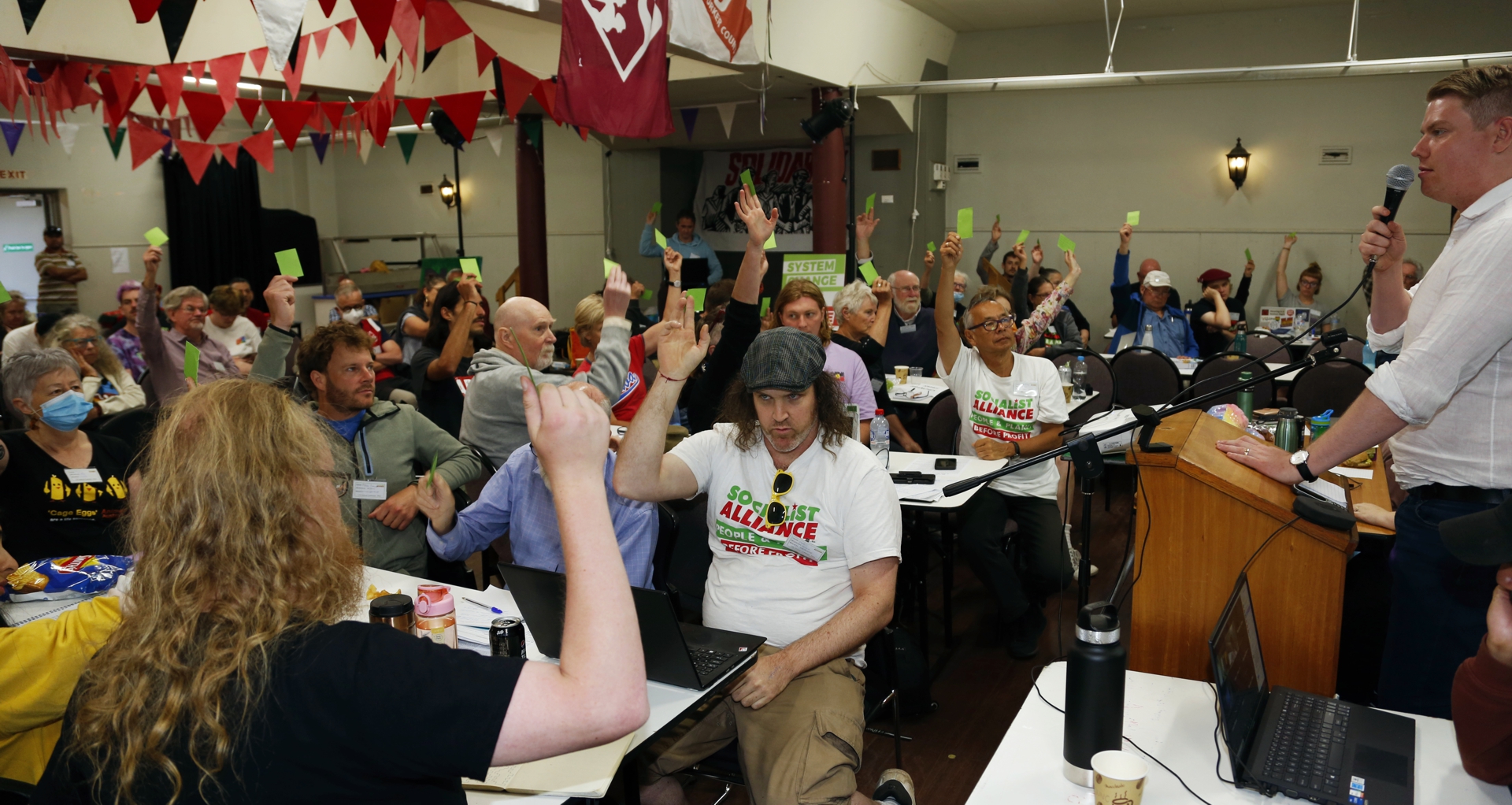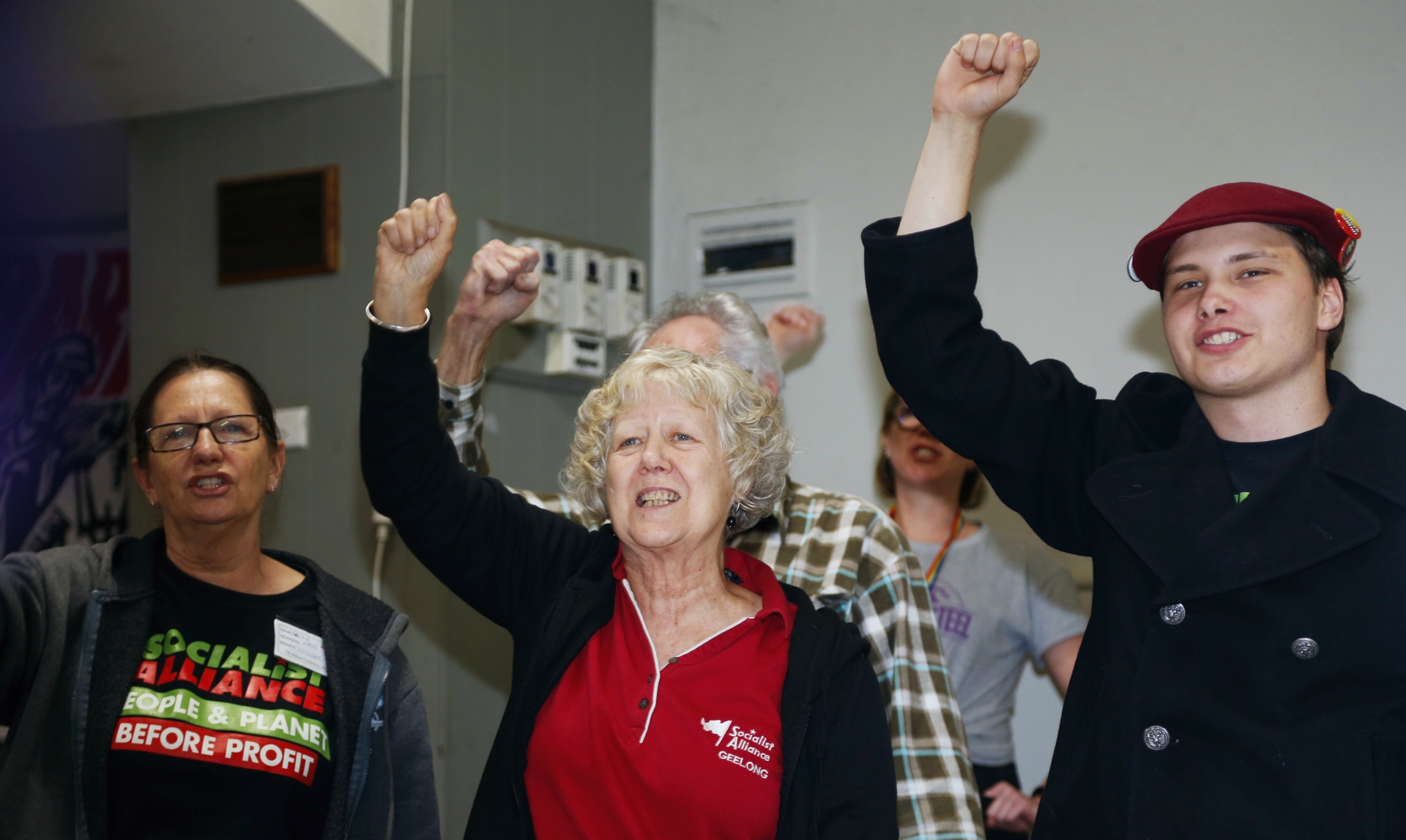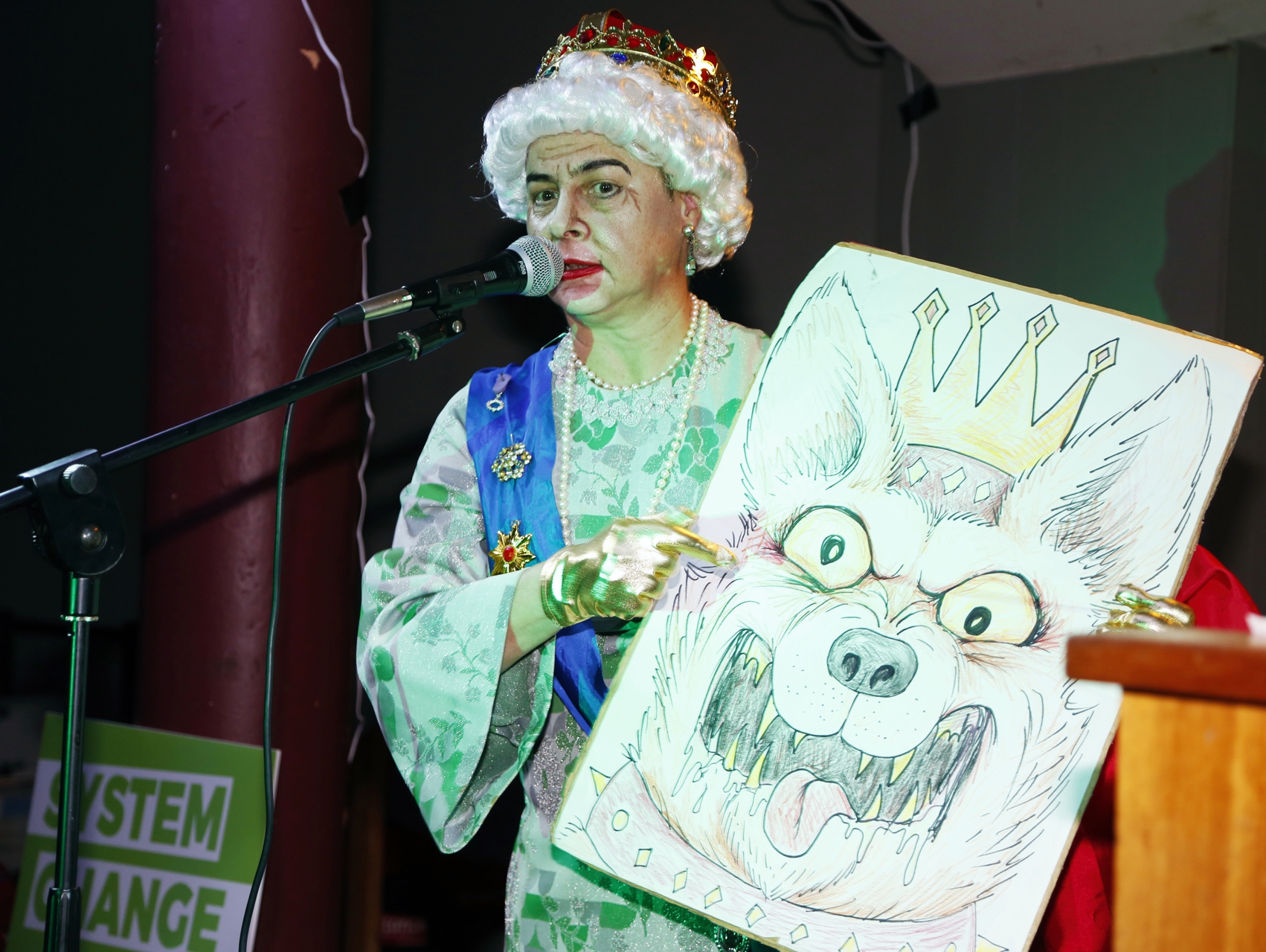
Socialist Alliance (SA) held its 17th national conference at the Geelong Trades Hall over January 14–15. Members travelled from across the country to meet in person for the first time in three years.
Socialist Party of Malaysia (PSM) organiser Soh Sook Hwa spoke on the opening panel about militarism, climate change, and workers’ rights.
Referring to floods that have displaced tens of thousands of Malaysians, she said: “We are seeing the effects of the climate crisis right now.”
Sook Hwa gave details about a small solidarity protest supporting hospital cleaners that brought “national attention” to unpaid wages. Some had not been paid for four months, she said, but they were “empowered” to carry out an action and “claim their rights”.
Kamala Emanuel spoke about the social and ecological impacts of recent floods and fires as a result of the climate catastrophe. “Those impacts are still with us as billions of dollars are being squandered to fund the military,” she said.
Emanuel said the ruling class is “salivating” to make profits from military hardware. The AUKUS military alliance is the “next step” of integrating Australia into the United States and British war machine — “another way of getting nukes by stealth”.
SA national co-convenor Sam Wainwright addressed the rise in militarism and the imperialists’ war drive against China. “It’s either we fight climate change, or prepare for a new cold war. You can’t do both; it’s one or the other,” he said.
Delegates voted to make opposition to Australian militarism a key focus, including: participating in local stop AUKUS groups; working with partners in the South East Asian region to oppose AUKUS; pushing for Australia to sign the Treaty on the Prohibition of Nuclear Weapons (TPNW); campaigning to ban nuclear-powered or -armed vessels using ports; and amending the War Powers Act to require parliamentary approval before troops can be sent to fight in wars overseas.
SA also opposes Australia’s arms export industry and supports calls to review existing military or “dual-use” exports. It said military exports to Saudi Arabia, Indonesia and the United Arab Emirates must be halted. It will also support protests around the time AUKUS is ratified (in March).
Delegates affirmed support for the Kurdish liberation movement, including the Autonomous Administration of North and East Syria’s call for “the immediate imposition of a UN-authorised no-fly-zone over North East Syria/Rojava to prevent an imminent invasion of this territory liberated by Kurdish-led freedom fighters”.
They called for the immediate release of Kurdish leader Abdullah Öcalan and condemned Turkey’s armed forces for using banned chemical weapons against Kurdish freedom fighters in northern Iraq/southern Kurdistan.
Delegates also voted to support protests organised around the 75th anniversary of Al Nakba in May.
SA’s position opposing Russia’s war on Ukraine and NATO’s expansionism was debated, with three positions put.
Opposition to Russia’s invasion, recognition of the Ukrainian people’s right to national self-determination free from all foreign interference, as well as condemning the US’s relentless drive to expand NATO up to Russia’s border, to encircle it militarily, was affirmed.
SA stands in solidarity with the Ukrainian resistance and Russian anti-war movement’s demand for an “immediate” and “unconditional” Russian troop withdrawal, the statement said in part.
Delegates supported an international call to show solidarity with Ukraine to coincide with the one-year anniversary of Russia’s invasion.
Commenting on the decline in support for the major parties vote, SA Merri-Bek councillor Sue Bolton cited an Australian Election Study showing how their vote “collapsed to 68% from 80% in 2010”. The Coalition’s vote from people under 40 years old also slumped to one in four voters.
Bolton said this was “unsurprising” given the climate emergency and the housing and cost-of-living crises.
“The Labor government is doing what the Labor government always does — introduce reforms which only go part of the way,” Bolton said. She cited the changes to industrial relations laws, a First Nations Voice without treaties and low climate targets as clear examples.
Delegates adopted a resolution on the Voice to Parliament. SA “will critically support a Yes vote” in the referendum on federal constitutional recognition of First Nations people and for a First Nations Voice to Parliament “if these measures do not in any way weaken First Nations’ sovereignty and treaty demands”.
The resolution also supported First Nations activists’ calls on the federal government “to fund and support a Truth and Justice Commission” to investigate and educate on “historical and ongoing oppression of the First Nations peoples”.
SA also reaffirmed “its commitment to a genuine treaty process with First Nations peoples”.
Several working groups were established to draft a transgender rights charter, a policy on sexual assault and the criminal justice system and to expand policy and representation of disabled people.
Delegates agreed to a youth working group to discuss opportunities for youth-led projects and campaigns.
Delegates and members shared their campaign experiences including the federal and Victorian elections. It was agreed that SA will re-register itself in Victoria.
Delegates supported Green Left’s 2023 Fighting Fund of $175,000, and to increase support in other ways for the 32-year-old media project.
Ecosocialism 2023 will be hosted in Melbourne in the latter part of the year and an Indian Ocean Solidarity Conference in Boorloo in 2024.
A national executive was elected and the national convenor team, comprising Sarah Hathway, Sam Wainwright and Jacob Andrewartha, was re-elected.
Video: Soh Sook Hwa: 'militarism and climate crisis in South East Asia' - Socialist Alliance.
Video: Kamala Emanuel: 'Social Solidarity is the only thing that can save us' - Socialist Alliance
delegatesvoting15-1-23byalexbainbridge-web.jpg

geelong15-1-23byalexbainbridge-web.jpg

queenandcorgi14-1-23byalexbainbridge-web.jpg

[Chloe DS is a member of the Socialist Alliance national executive.]